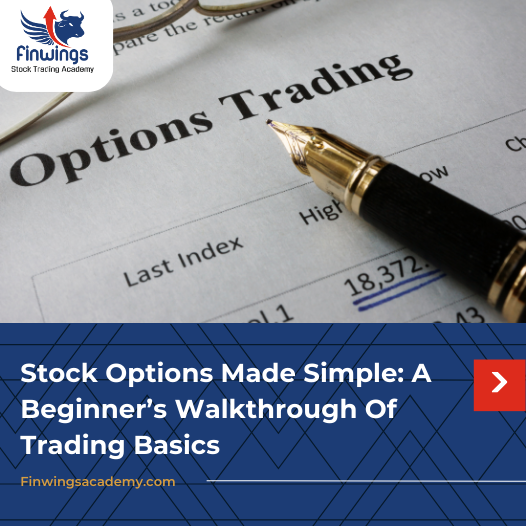Everything you wanted to know about options trading
Stock market is full of ups and downs just like the share prices. Everybody who thinks the stock market is easy is busted when he joins the market and starts trading in reality. It is always better to do a stock market course in Ahmedabad and then proceed to the stock market so that your basics are clear and you are good to go. When it comes to options trading, it is considered as the most lucrative as well as the most risky type of trading where you can gain enormous wealth in a day and can lose lakhs of rupees too and wipe out your entire wealth. In this article, we will discuss everything about the options trading like calls and puts so that you have a clear understanding of it before you dive into options.
What are options?
Consider the trading of options as a unique contract. This agreement grants you the exclusive right to purchase or sell a specific quantity of securities or other assets at a predetermined price at a later date. You are free to exercise these exceptional rights as you feel fit; you are not required to or forced into doing so. However, you have the option to complete this before or on the designated day.
Technically speaking, options belong to a wider group of financial instruments called “Derivatives.” The price of a derivative, such as forward and futures, puts, calls, swaps, and mortgage-backed securities, is determined by the price of another asset.
Types of Options
There are basically two types of options which are taught in detail in a good share market course in Ahmedabad and we will discuss them in brief below.
Call option
The right, but not the responsibility, to purchase the underlying securities at the strike price on or before expiration is granted to the holder of a call option. As a result, a call option will rise in value in tandem with the price of the underlying securities (calls have a positive delta). Since a long call has limitless upside potential and the maximum loss is equal to the option’s premium, it can be used to speculate on the underlying price rising.
Put Option
Put options, in contrast to call options, allow the holder the option—but not the obligation—of having to sell the underlying stock at the strike price on or before the option’s expiration. Because the option gains value when the price of the underlying asset declines (they have a negative delta), a long put is essentially a short position in the underlying security. As a kind of insurance, investors can purchase protective puts, which give them a price floor on which to hedge their positions.
How to trade options?
These days, a lot of brokers let qualifying clients trade options. You must have approval from your broker for both margin and options if you wish to trade options. Stock market classes in Ahmedabad gives you in depth knowledge of trading in options.
Purchasing stock makes you a long-term investor. You can potentially acquire a long position in the underlying stock by purchasing a call option. You get into a short position when you short sell a stock. Selling an uncovered or naked call allows you to potentially take a short position on the stock that is being sold.
You can potentially take a short position in the underlying stock by purchasing a put option. You could be able to acquire a long position in the underlying stock by selling a naked or unmarried put. It’s important to keep these four scenarios straight.
Tag:options trading










